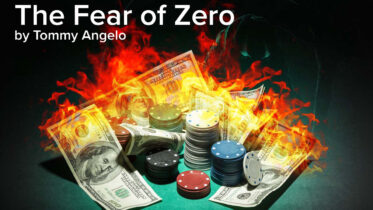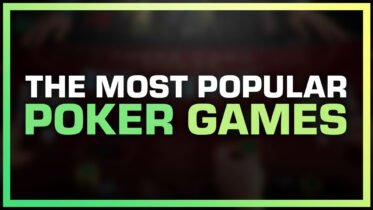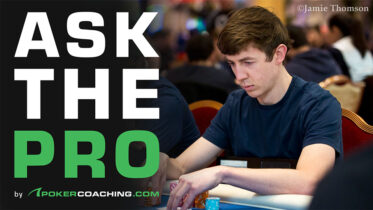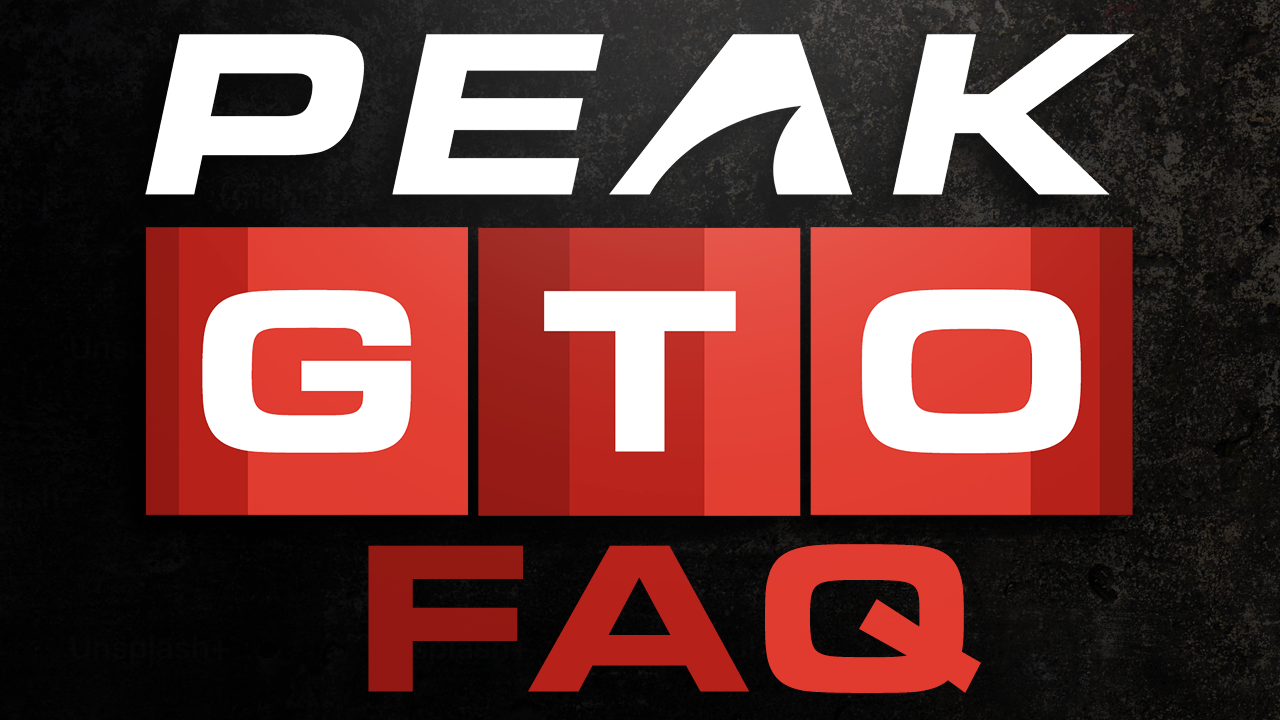To play your best poker all the time, you must feel financially secure all the time. That’s just how poker works.
Never underestimate the steady strain that an inadequate bankroll puts on your poker system. An underfunded poker player is like a hobbled athlete. There’s no way you can play your best poker.
Be not afraid
What if you were never afraid of being check-raised? Can you even imagine how awesome that would be? What if you had no fear of being felted, or looking stupid, or playing too long?
When we’re afraid, it’s always something specific we’re afraid of. By naming and knowing our knots of fear, we can untie them. The idea is that by devoting mindshare to picturing and pondering our fearful situations, we develop wisdom and understanding that makes us less afraid. Over time, fears melt away, as does our fear of those fears. And if you take the fear out of poker, all that’s left is good.
Naming and Knowing
Here’s one: the fear of failed bluffs. Think of how much sharper your routine bluffs are when you’re brave. How about the fear of looking like a payoff chump? That one makes me fold when I should call. Or the fear of getting coolered. That one makes me miss value bets.
Our list of specialty fears and their associated costs is, dare I say, frightful. And we have no choice but to contort our game to navigate our undulating fear-scape. There’s fear of good players, and fear of bad players, fear of ridicule, fear of confusion, fear of bad coffee, etc.
Here’s a biggie: fear of failure. Who would we be without our foundational fear of losing? Losing hurts. We fear what hurts. We can lose at any moment. So we’re always afraid.
And then there’s the granddaddy of them all – the king of fears – the fear from which all fears flow…
The Fear of Zero
Death by poker means going to zero. There’s three ways to do that: when your stack goes to zero, when your on-hand bankroll goes to zero, and when your total bankroll goes to zero.
One handy feature of stacks and bankrolls is that they can be resurrected. No matter how you die, you can come back to life. But that doesn’t keep the fear of dying from messing with your head and your bankroll.
Next, we’ll look at stack death, pocket death, and bankroll death. Each has its own customs and rituals.
Fear of Stack Death

The two leading causes of stack death are bad luck and bad play. I’m not sure which I’m more afraid of: the gods, or myself.
Why are we afraid of getting felted? Are we afraid of losing money? Are we afraid of blaming ourselves? Is it shame that we’re scared of? Or maybe we just can’t bear another gut-punch.
The answer is yes. It’s all of the above and more. So many knots of fear, tied tight by repetition. It’s a big job, just to loosen them a little. Then a little more.
Fear of Pocket Death
Pocket death is like skiing down a mountain and into a tree. Pocket death is what happens to a sinking ship. Pocket death is when you must walk away from a game because you’re out of money but you really, really, really want to keep playing.
When you lose that last pot of the night, only then are you actually out of action, when up to that moment, there was that taunting hope for a comeback. When it’s finally officially over, that’s when the real pain kicks in.
Such a brutal way to die. No wonder we tremble at the thought. And get this. We’re not only afraid of the pain of going busted, we’re also smart enough to be afraid of what the fear does to our game…
It’s only 10:30pm, and somehow Larry’s fourth and final buyin is already on the table. What sucks is that Larry has clearance to play all night. He’s still totally jacked up on poker energy, but also terrified, because if he loses the chips in front of him, he’s done.
The fear gains strength and seizes control of Larry’s betting. He gets pocket jacks in the big blind and instead of 3-betting the button’s open, he just calls. Then he drifts through that hand and all that follow in a state of panic-induced timidity. No surprise, he’s in the car by 11:00.
Pocket death always involves a stack death. This makes pocket death a perfect storm of fear. When the fear of zero dances in step with the fear of being forced to quit playing, you’re toast. In that condition, A-game is a fantasy. But we deny or ignore that fact. I’ve been there many times. Nursing my final buy-in. And I’ve profited plenty from opponents trying to revive a nub before its inevitable demise.

Are you saying that the fear of death is, in itself, a cause of death?
Yes. Just by thinking about going home broke you become more likely to go home broke, because it undermines your A-game. What a nasty loop that is.
I know that the solution to not having enough money is to have more money. Meanwhile, what’s a degen to do?
I get it. If the choice is to play on short money or not play, then you have no choice but to play on short money. I’ve been there many times too. It was a no-brainer to play if I could. But it still sucked, every time, especially compared to how it feels to be properly padded. I guess all I’m saying is, never underestimate the steady strain that inadequate funding puts on your poker system.
If you’re a serious amateur and you know in your gut that you’re better than your results, it could be that the only thing holding you back is bankroll. Reminder: To play your best all the time, you must feel financially secure all the time.
Fear of Bankroll Death
Stack death and pocket death occur only during poker, whereas bankroll death brings real life into the agony. Your pain may vary.
For recreational players and serious amateurs, the most obvious and common cause of bankroll death is losing, followed by spending, which is another word for priorities. You might spend your poker money on a fancy vacation, for example, or to fix a flooded basement.
For the rec, being sidelined for a while isn’t always tragic. For the ambitious amateur, bankroll death by way of losing is brutal, but not existentially so. It’s more like a serious injury. For the pro, however, no matter what stakes they play, when the reaper comes into view, the fear is toxic.
There’s the practical fear of not having money to pay bills and not having a way to make a living. And then there’s the fear of failure. When a pro player identifies intensely as being a pro, it doesn’t much matter if they hit bottom from running bad, playing bad, or spending bad. The feeling of failure is crippling. A client told me it was like the universe gives you a golden goose, and you’re set for life, and then you watch yourself slowly kill the goose. And then you have to live with that.
And that’s just the inner face of failure. When you add friends and family to the picture it gets even uglier. Now it’s all about the tortuous humiliation the pro must endure each time somebody asks, “How’s the poker going?” and the fallen warrior has to say, “I got a job.”
Now that’s something to be afraid of.
And in the end…

Can we defy death? No. Can we defy our fear of death? Probably not. Can we reduce our fear of death? For sure! But before that can happen, we need to attempt to understand what we’re dealing with, which is all I’ve been doing here. And what we’re dealing with appears to be a chaotic jumble of worries and aversions that never rests. Fear is adept – it can always find something to be afraid of. That’s its purpose. Just ask it.
Hello fear. Why are you here?
To make up stories.
What kind of stories? Love stories? Hero stories?
Sorry, no. All my stories are scary.




